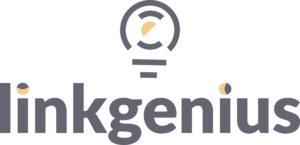6 Ways to Spot a Link Farm

Are you unknowingly falling victim to link farming practices that can harm your website’s SEO ranking? Link farms, a black hat SEO technique, can lead to penalties, loss of trust, and poor traffic quality.
Spotting a link farm is crucial to protecting your website’s reputation and visibility. By identifying key red flags like excessive outbound links, spammy domain names, and common backlinks, you can steer clear of these harmful practices. Stay ahead of the game and learn how to spot a link farm before it impacts your website’s ranking and reputation.
What are Link Farms?
Link farming is a black hat SEO technique that involves creating a group of websites that link to each other without considering content quality. This practice aims to increase a website’s backlinks catalog and manipulate search engine rankings. However, link farms are considered unethical and can negatively affect a website’s reputation and visibility.
Link farming originated in 1999 when search engines relied on link quantity to determine website relevance. At that time, link farms were effective in boosting search engine rankings. As a result, search engines like Google have since introduced updates like Panda and Penguin to prioritize link quality over quantity and combat link farming practices.

How to Spot Link Farms
There are several ways to identify link farms and avoid engaging with them. Some key indicators include:
Excessive Outbound Links
One of the hallmark signs of a link farm is an unusually high volume of outbound links. These are not just plentiful but are also typically irrelevant to the site’s content.
Search engines view this as a red flag for manipulative link-building practices. It indicates a strategy focused more on quantity rather than the quality of connections, often leading to a negative impact on a website’s SEO performance.
Irrelevant and Poorly Written Content
The quality of content on link farms is notoriously poor, characterized by irrelevance and incoherence. These sites usually have articles or texts that are awkwardly stuffed with keywords, making them difficult to read and offering little to no value to visitors. This irrelevant content is a clear indicator of a website’s primary goal being link manipulation rather than providing meaningful information or user engagement.
Spammy Domain Names
Link farms often resort to using domain names that are either completely unrelated to the website’s actual content or are overly optimized with spammy keywords. These domains are chosen not for branding or relevance but for attempting to game search engine algorithms through keyword stuffing in the domain itself.
Common Backlinks
Analyzing the backlink profiles of suspected link farms can reveal patterns such as shared backlinks among various sites. This commonality suggests a networked effort to bolster search rankings artificially. Such a strategy is part of a broader link-building scheme where multiple sites are interconnected, often to deceive search engines and boost page rankings improperly.
Anonymous Authors
The lack of transparent authorship is another red flag. Link farms typically feature content written by anonymous or non-existent authors, or they might use generic names to mask the real contributors. This anonymity is a tactic to avoid accountability and scrutiny, as credible authors usually stand by their content and maintain a consistent presence.
Repetitive Template Designs
A visual clue of a link farm is the repetitive use of template designs across various pages or even different websites within the same network. These template-based designs lack originality and are often low effort, chosen for their ease of replication rather than providing a quality user experience.
The Risks of Engaging with Link Farms
Link farms are considered a black hat tactic since they merely aim to manipulate search engine rankings without providing valuable content to readers. It’s best to avoid them altogether to avoid these:
Penalties and Bans
When it comes to SEO and digital marketing, it’s important to understand the risks involved in engaging with link farms. Link farms are a group of websites that link to each other without considering the quality of the content. This black hat SEO technique aims to increase a website’s backlink catalog and manipulate search engine rankings. However, search engines like Google have implemented penalties to discourage and penalize link farming practices.
Google’s penalties for link farming practices can have serious consequences for your website. Engaging with link farms puts you at risk of being banned from search engine results entirely. This means that your website will no longer appear in search engine rankings, making it difficult for potential customers to find you. The long-term consequences of engaging with link farms can be detrimental to your online presence and reputation.
Negative Impact on Website Reputation and Traffic
Engaging with link farms can have a negative impact on your website’s reputation. When search engines detect link farming practices, it can damage the credibility and trustworthiness of your website. This can lead to a decrease in genuine traffic and potential customers. Users and business partners may lose trust in your website and be hesitant to engage with your brand.
Furthermore, link farms often generate low-quality links that do not contribute to improving your website’s rankings. Instead, these links can harm your website’s SEO performance and visibility.
Alternatives to Link Farming
Instead of link farming, follow these best practices for sustainable SEO:
Guest Blogging
Guest blogging involves writing articles for other websites in your industry. This helps build relationships with other website owners and gain high-quality backlinks to your site.
By contributing valuable content to relevant sites in your industry, you not only showcase your expertise but also enhance your digital footprint. Link Genius can amplify your guest blogging strategy by identifying new, relevant sites for your content, ensuring that you consistently reach your target audience and build your backlink profile effectively.
Influencer Outreach
Influencer outreach involves reaching out to influencers in your industry and asking them to share your content or link to your website. This can help increase your website’s visibility and authority.
Use Link Genius to streamline your outreach process, from finding the right influencers to crafting personalized communication. This way, you increase the likelihood of gaining influential backlinks and enhancing your online authority.
Broken Link Building
Broken link building involves finding broken links on other websites and suggesting your website as a replacement. This is a win-win situation as you help the website owner fix their broken link while gaining a high-quality backlink. Link Genius can help you track down broken links more efficiently and manage outreach to site owners, making your link replacement proposals more timely and relevant.
Resource Page Link Building
Resource page link building involves reaching out to website owners with resource pages in your industry and suggesting your website as a valuable addition to their list of resources. This can help you gain relevant backlinks and increase your website’s authority.
This method aligns with creating mutually beneficial relationships, where your content adds value to their resource page, and you gain a quality backlink. With Link Genius, you can filter and identify websites that host resource pages relevant to your niche, streamlining the process of finding and connecting with these opportunities.
Social Backlinks
Leverage the power of social media platforms to promote your content, engage with your audience, and attract natural backlinks. Share your insights, interact with followers, and encourage the community to link back to your content. Link Genius enhances this strategy by providing insights into which content performs well on social platforms, helping you tailor your content to encourage more shares and backlinks.
Proper Internal Linking Strategy
Implement internal linking strategies within your website to improve navigation and enhance the user experience. It also provides value to users who are already on your site by guiding them to more resources that can help them find the solutions to their needs.
Quality First, Always
Steer clear of link farming practices to safeguard your website’s ranking and reputation. Moving forward, you must prioritize quality over quantity when it comes to building backlinks and avoid engaging in any practices that violate search engine guidelines.
By creating valuable and engaging content and seeking opportunities for guest posting, you can establish a strong and reputable online presence without resorting to unethical tactics like link farming. Embracing ethical SEO practices and focusing on delivering high-quality content are key to achieving sustainable success in search engine rankings and maintaining a positive reputation in the digital landscape.
